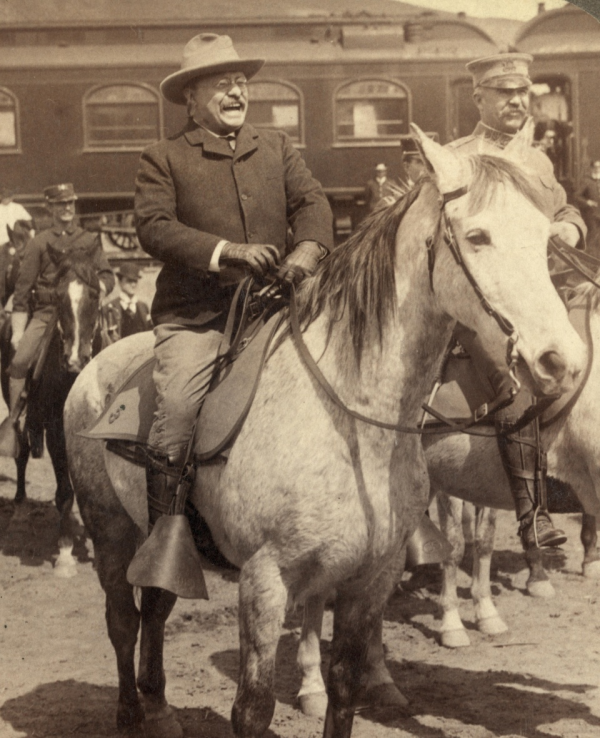 Teddy Roosevelt, the great Bull Moose himself.
Teddy Roosevelt, the great Bull Moose himself.
"When Virtue Becomes Vice" is the title of a recent article in the October 2013 edition of Psychology Today which illustrates how virtues such as excellence, balance, perfectionism and confidence can become an issue if practiced compulsively in an individual’s life. The piece begins with an anecdote of how Theodore Roosevelt was shot in the chest by a saloonkeeper. Despite this bullet lodged in his chest, Roosevelt chose to persevere through the rest of his campaign speech. The author attributes to him and a host of similar bold leaders, characteristics such as self-confidence, resilience and fearlessness.
All these characteristics seem like virtuous traits –bestowing positive outcomes upon the owner --right?
Yes, they would in many cases and in moderation; but, when such traits are exercised beyond a point where they fail to provide utility for the individual or even the greater society then the answer would more likely veer to no.
Let’s look at the phenomenon of a virtue converting to a vice, and how it plays out in the test preparation realm.
What traits do you consider useful, not only for doing well on standardized tests, but also for preparing for tests? I would take a gamble and say that you might have thought native intelligence, diligence, focus, good test-taking skills, lots of practice and confidence are all important. And these characteristics are all important—one might even say indispensable.
However, I’ve noticed a few virtues gone vice in some of my test preparation students to the detriment to their effective preparation. Following are archetype descriptions of each of those students and how a particular trait can either help them on standardized tests—or gravely hinder their progress.
Archetypes
Confident - this student comes to the tutor brimming with confidence. No matter what his initial diagnostic score is, this student feels that as long as he is confident then his score will improve. This is a great trait because it means that the student sees that ‘the test’ is just another challenge, not one to be scared of or an insurmountable hurdle.
This trait becomes a problem when confidence verges into over-confidence, the kind that says ‘if I score high on one practice SAT or GRE or MCAT, then I will be fine, I can do it every time.” While I never want to take away any student's confidence, I have to work hard at letting such a student know that to really guarantee success on a real exam, one must score at the target range many times before one can be remotely assured of getting such a score on test day.
Native intelligence – this person often gets most of the questions right on any exam, and compared to the average test-taker, standardized tests are a walk in the park for her. However, without practice and a really honed in understanding of why she makes the few mistakes that she consistently does, it can be very hard for this high scorer to go up even more. When most things come easily to a person, it can also be easy to let the dedication needed to get the really really tough questions go. I see this with students who are really close to getting a full scholarship if they could just get another two points on their ACT. Yet they often are smug with what they know and think that they can’t learn anymore.
Collaborative – this test-taker makes a great student, but can often times form a dependence on a tutor rather than learn how to eventually sail through the exams on his own. As the tutor, I love this student because it is so easy to teach them and they can make quick gains because they are open to learning from an expert. On the other hand, if they become too collaborative and don’t recognize that at the end of the day they have to go in and take the test alone, they might rely too much on the tutor…and this very reliance takes away from the kind of drive and metacognition one needs to get really good at standardized exams—to say nothing of the independence one needs to succeed in college or graduate school.
So what is the lesson here? Know what you know, know what you don’t know. Be focused, but stay adaptable to allow for deep learning while avoiding bad habits. Be confident—always!—but don’t let your confidence ever fool you into thinking that you shouldn’t learn more.

Comments